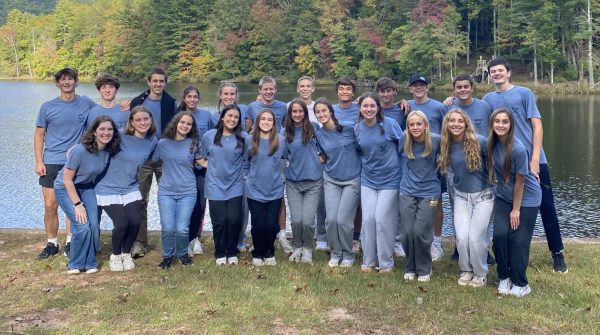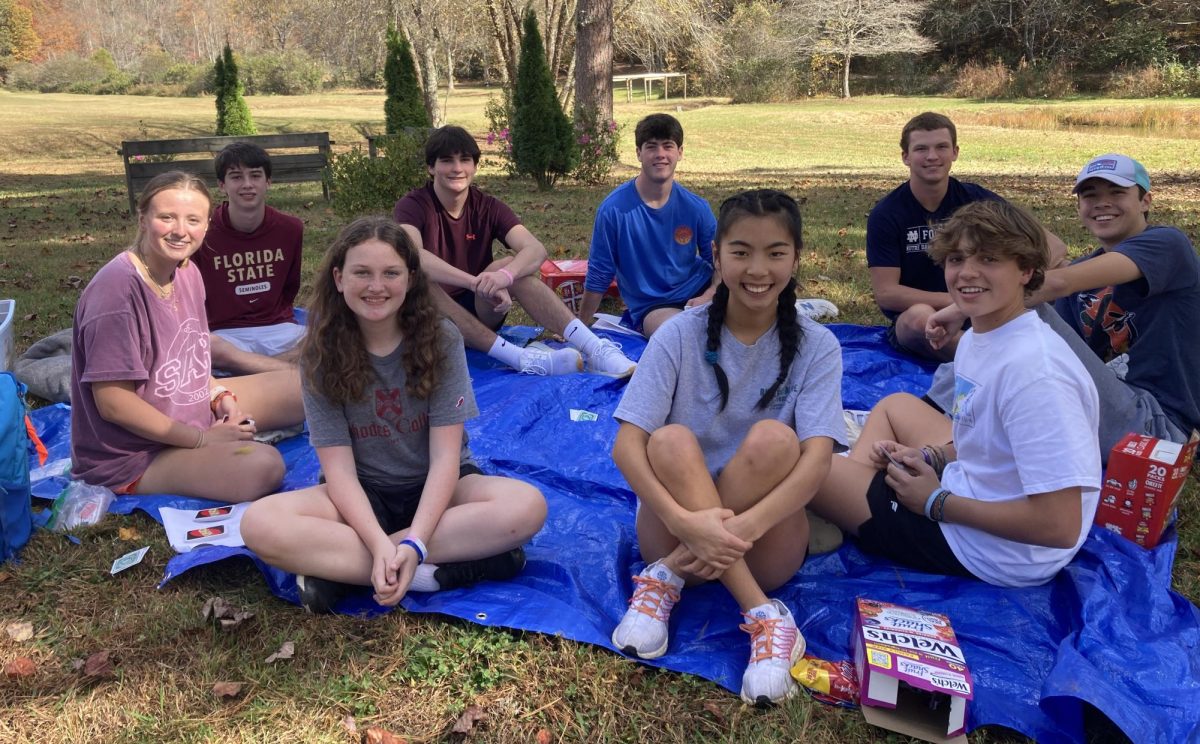Every year, campus ministry organizes retreats for every class. The middle school retreats, Damascus and Antioch, take place on a single Saturday while high school retreats last the entire weekend.
Because so many students choose to go on these retreats, campus ministry needs help running the retreat in small groups, so they recruit retreat leaders. Students from the class above apply to become a leader during retreats.
To fully understand who retreat leaders are and what they do, I interviewed Director of Campus Ministry Brian Freel. He emphasized that the main job of retreat leaders on the retreats is to “facilitate the small groups.” During the retreats, students split into groups of 5 to 8 retreatants to promote open conversations among peers.
Retreat leaders facilitate these groups by creating a safe space for conversation, connecting with God, and strengthening relationships with peers. At the beginning of retreats, leaders lead small groups in icebreakers and questions to help the group become more comfortable with one another. As the retreat goes on, group conversations become deeper, and leaders help to facilitate the tough discussions.

The characteristics that campus ministry looks for in their retreat leaders are hospitality, trustworthiness, and compassion. Freel said that leaders have to be “able to help others feel welcome and safe.” A major aspect of the small group sessions is confidentiality. Retreat leaders need to model and encourage discretion so that everyone feels safe and willing to open up.
Although retreats are largely about connecting with God, retreat leaders do not have to already have a deep relationship with God. They can grow in their relationship with God even while leading retreats, and most retreat leaders do.
Retreat leaders have plenty of fun on the retreats too. Campus ministry receives hundreds of applications every year, demonstrating how fun the experience can be.
Retreat leaders are an integral part of every retreat; there would literally be no retreats without them.




